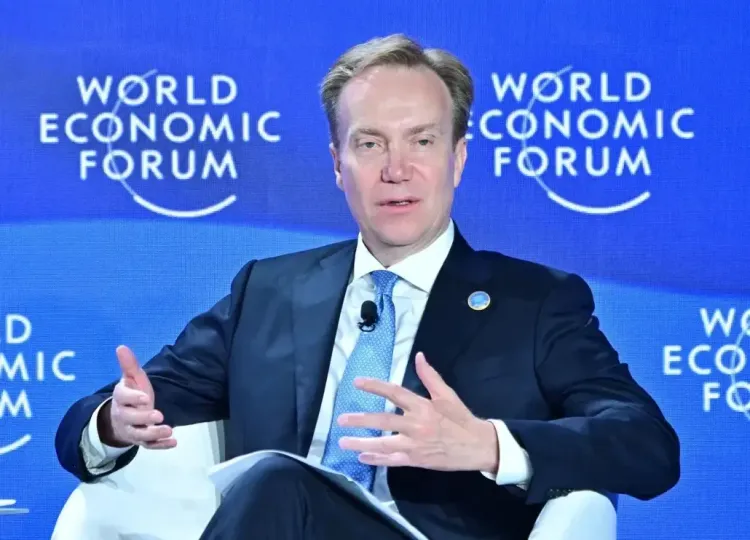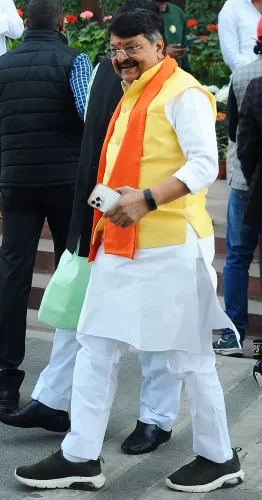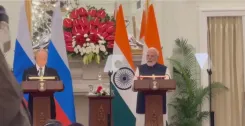WEF President Anticipates 7-8% GDP Growth for India Fueled by Economic Reforms

Synopsis
Key Takeaways
- India projected to achieve 7-8% GDP growth.
- Over 120,000 startups in India.
- Shift towards digital economy is crucial.
- Opportunity to upskill and reskill workforce.
- Climate action is essential for sustainable growth.
New Delhi, Jan 20 (NationPress) The president and CEO of the World Economic Forum (WEF), Borge Brende, has projected a GDP growth for India between 7 to 8 percent, driven by increased investments resulting from economic reforms.
In a special interview with NDTV from Davos, Switzerland, Brende stated, "India has remarkable potential, and it continues to thrive at approximately 6 percent this year. However, there is no reason why India cannot accelerate to 7 percent or 8 percent, provided that reforms are implemented in investments, infrastructure, education, and research and development."
Brende expressed his belief that in the coming years, India will account for 20 percent of global growth, which is quite remarkable. He highlighted the robust startup ecosystem in India, which boasts over 120,000 startups and more than 120 unicorns. He emphasized that this ecosystem is foundational for future growth.
When asked about India's ambition to become a developed nation by 2047, Brende remarked that India is on track to become a $10 trillion economy soon, aided by a shift towards digital trade and services.
"Digital trade and services are expanding at three times the rate of traditional goods. India excels in these areas," he pointed out.
Responding to a query about the challenges and opportunities posed by the increasing digitalization of the workforce, Brende noted, "It leads to enhanced productivity, which means achieving more with fewer resources. While this may impact certain jobs, it can also enable people to transition into higher-value roles that offer better pay and productivity, fostering prosperity."
He added, "India faces significant opportunities with emerging technologies, but the immediate challenge will be upskilling and reskilling the workforce."
As the world struggles to maintain the 1.5-degree Celsius target for global warming, the WEF has prioritized climate action.
"Climate is critically important. Recent events, like the wildfires in Los Angeles, and ongoing droughts have shown how agricultural production is increasingly threatened. Certain regions can no longer sustain traditional crops," he explained.
Brende cautioned, "The cost of inaction on climate change far outweighs the cost of taking action. We must maintain momentum to reduce CO2 emissions significantly over the coming years to meet the 2-degree target," he added in his conversation with NDTV.
The five-day WEF summit in Davos, starting Monday, will focus on revitalizing growth, leveraging new technologies, and enhancing social and economic resilience. Nearly 3,000 leaders from over 130 countries, including 350 governmental leaders, are expected to attend the global meeting.
India will be represented by five Union ministers, three chief ministers, and various ministers from other states at the WEF summit.









